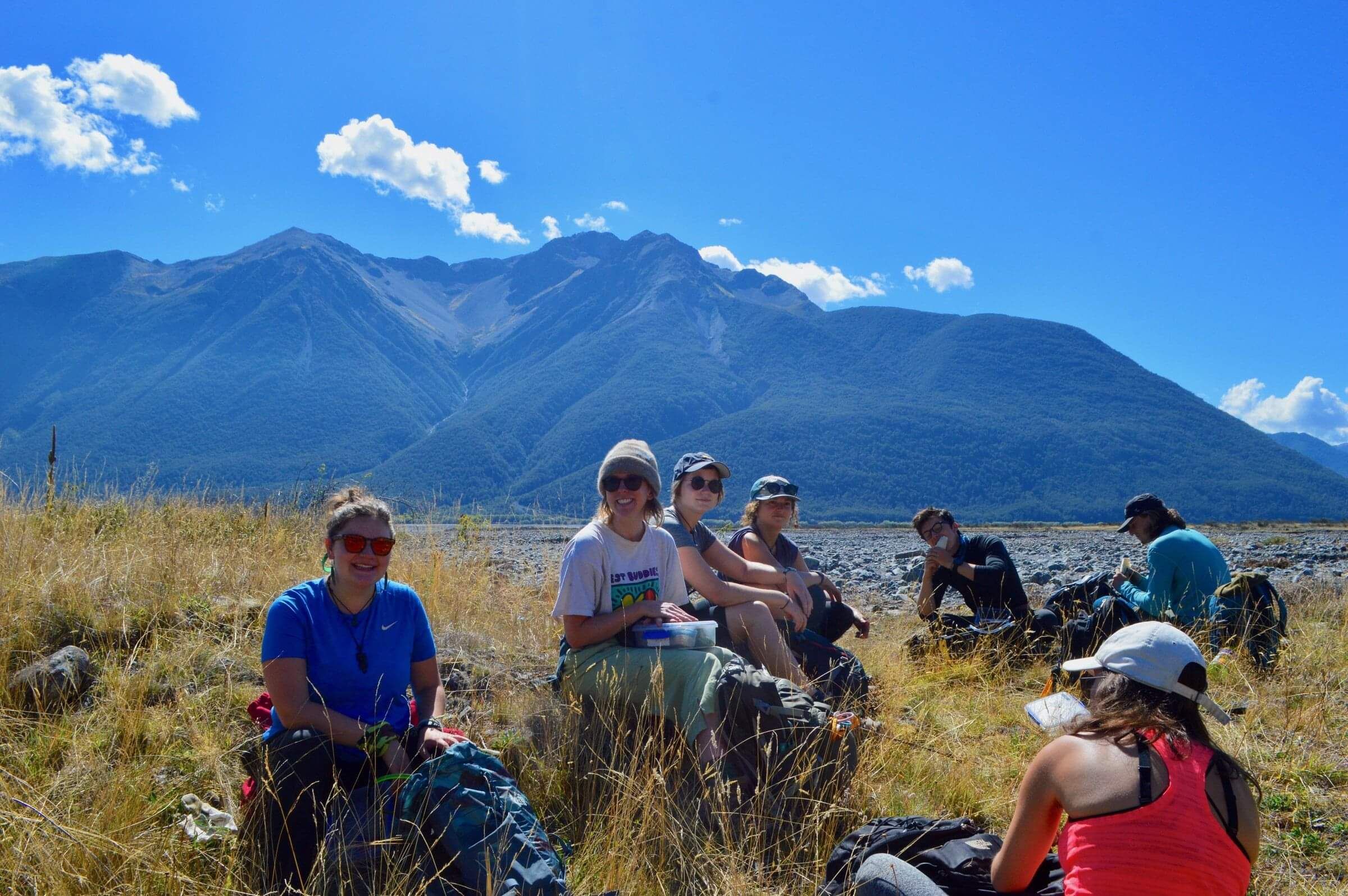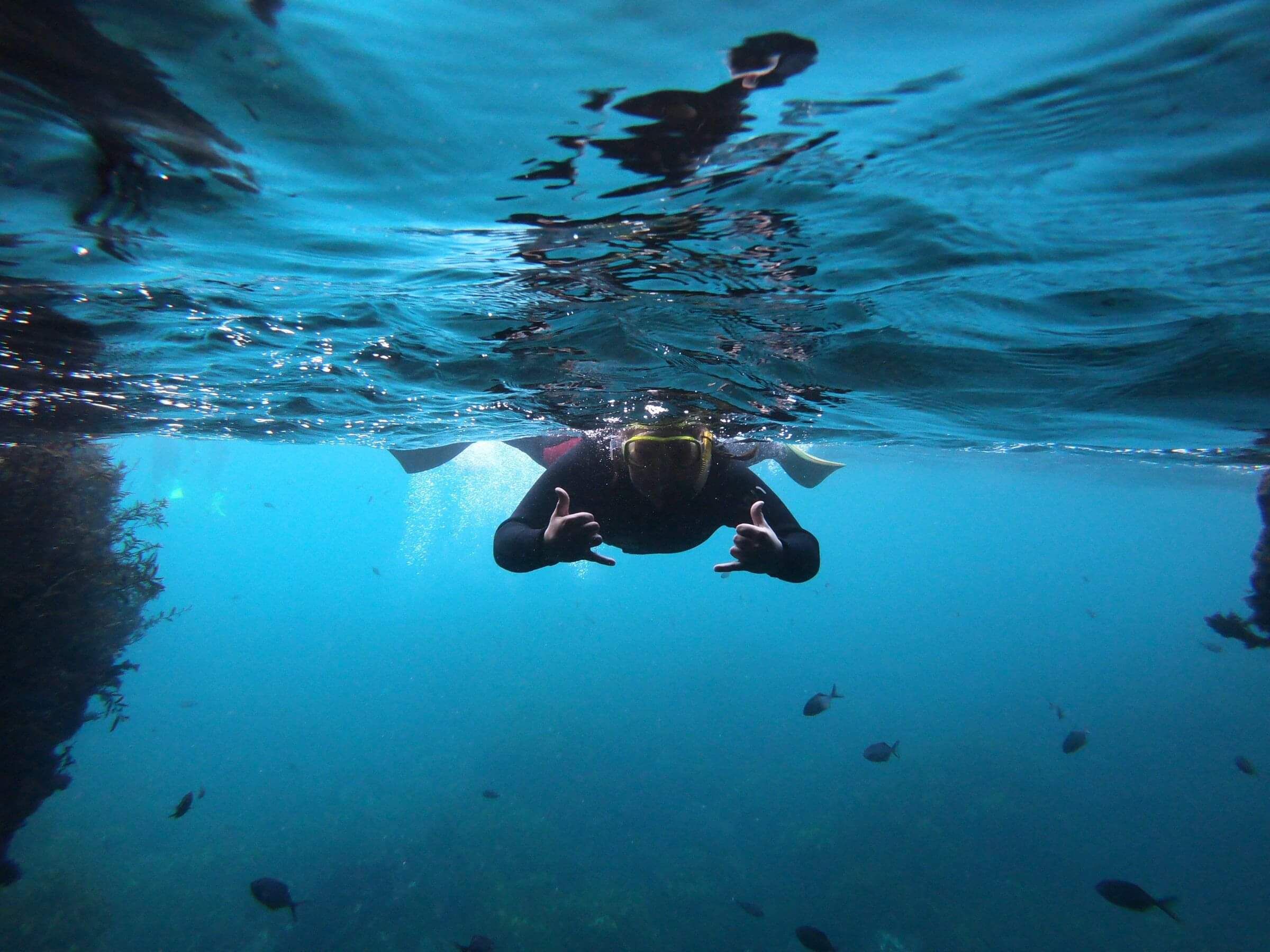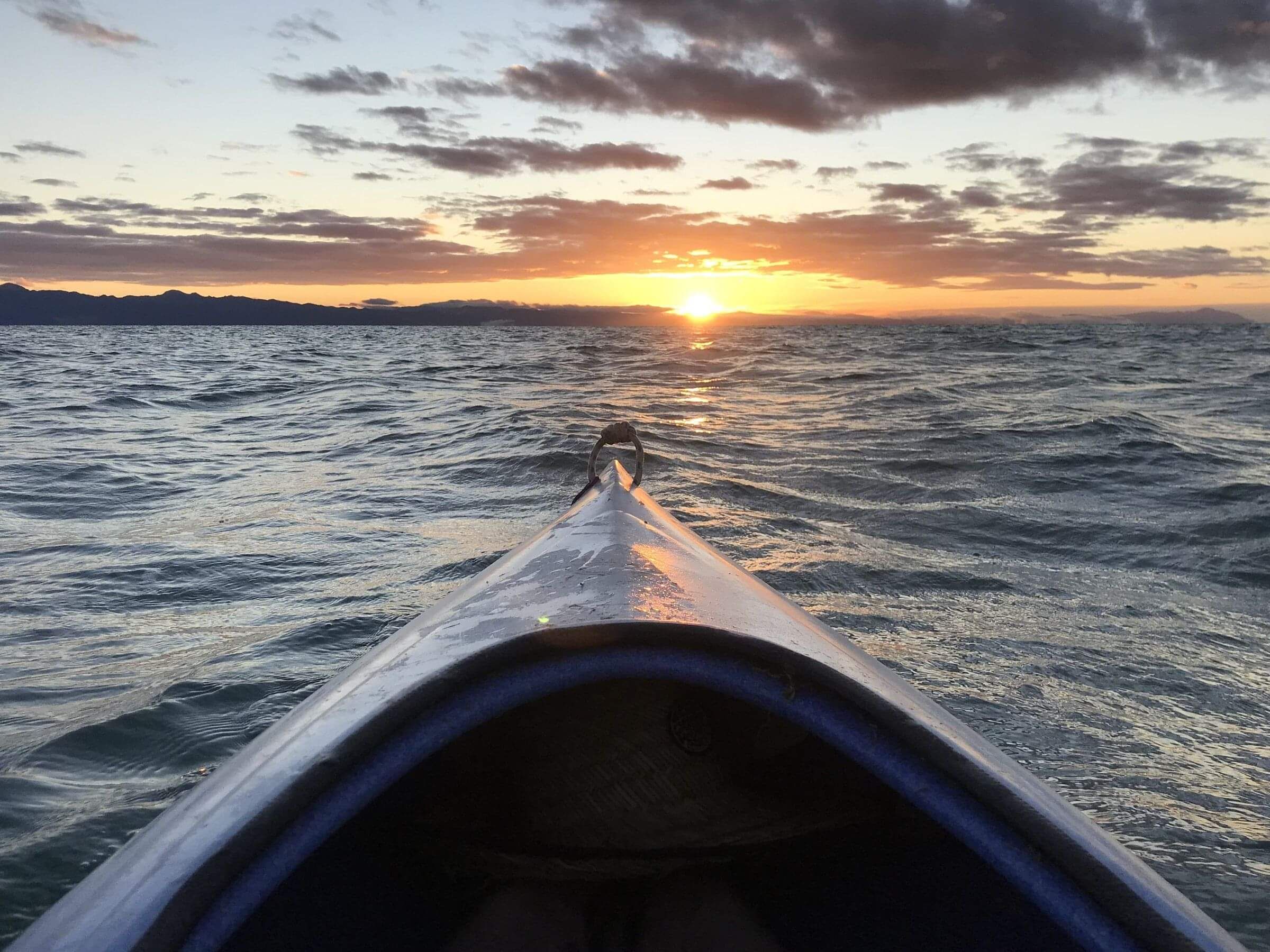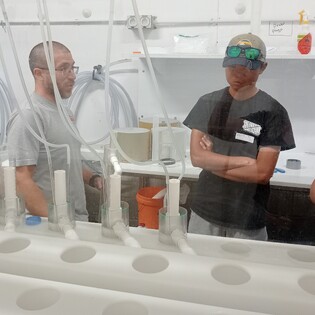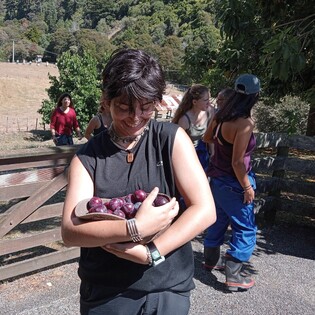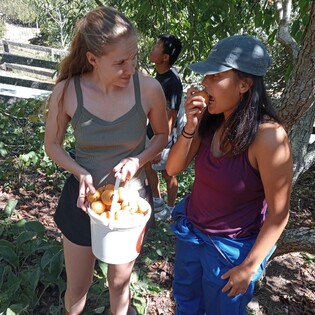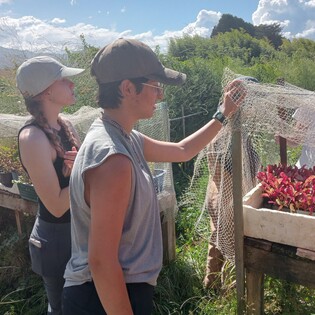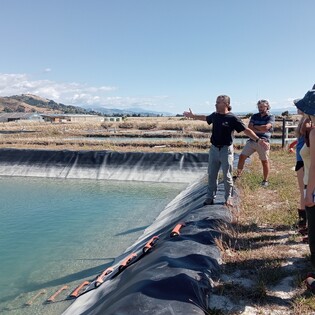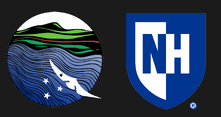Programs
EcoQuest offer three different programs.
Ecology in Action
A rigorous field-based program with a focus on practical skills and conceptual thinking, along with opportunities to contribute to local conservation and resource management initiatives.
Students have the option of a full 15 week Semester program or a shorter 5 week Summer program.
Semester Program
15 Weeks, 16 Credits, 4 Courses
The catch-phrase ‘Ecology in Action’ is a fitting description for the programs we have run for 21 years. The EcoQuest Ecology in Action Aotearoa semester programs are delivered from the mountains to the sea, in a variety of ecosystems in both te Ika a Maui (the North Island) and te Waipounamu (the South Island).
Our interactive field-based programs incorporate hands-on, experiential learning opportunities and a focus on both practical skills and conceptual thinking.
EcoQuest gives students the chance to gain and develop transferable knowledge and skills to make a difference anywhere on the globe.
Directed research projects are comprehensive field-based studies that equip students with the knowledge and skills required to become effective, modern researchers. All research projects in which EcoQuest engages, have scientific and societal relevance. Projects enable students to make significant contributions to (often longitudinal) research, benefiting the environment, local communities, collaborators and partners.
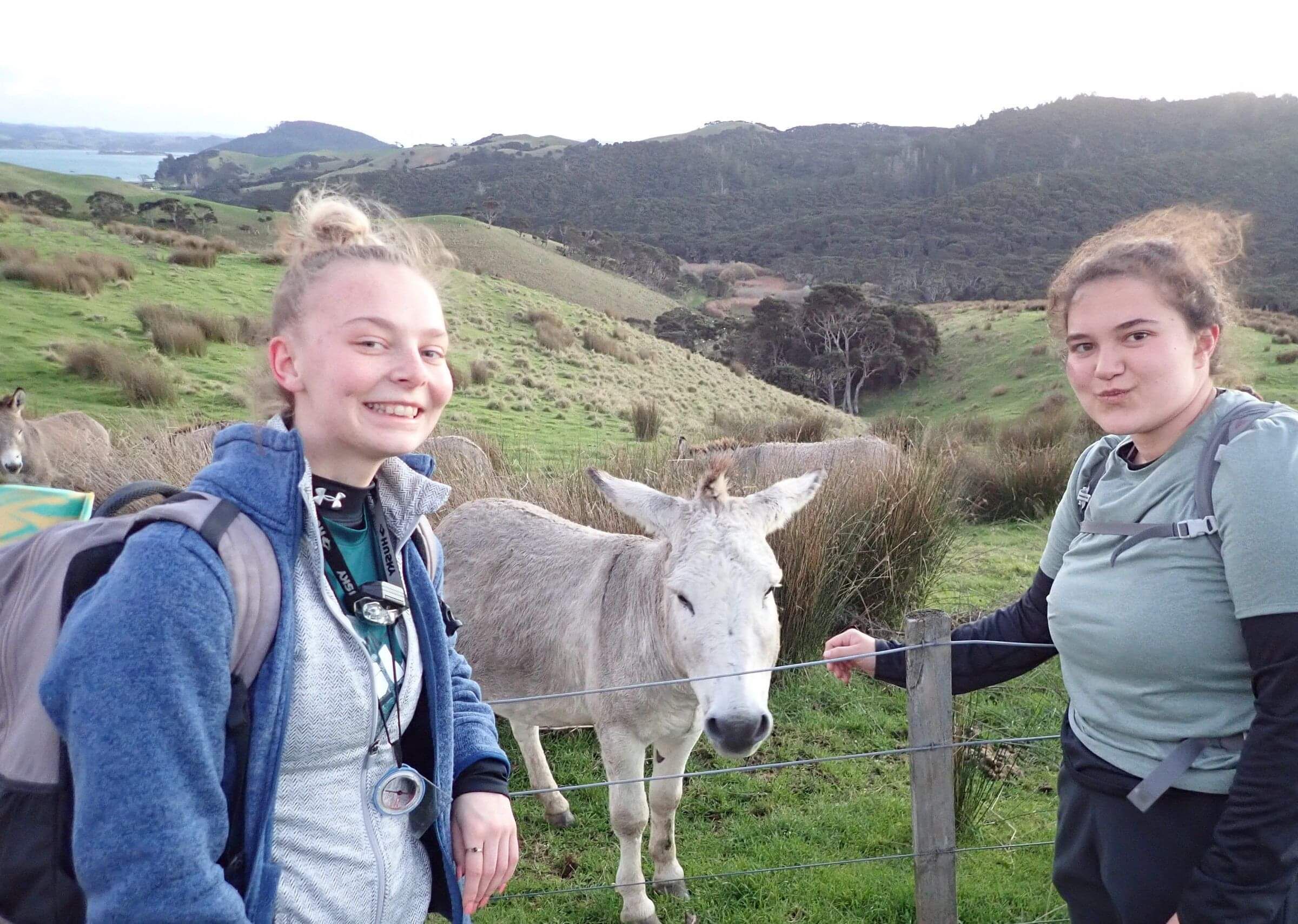
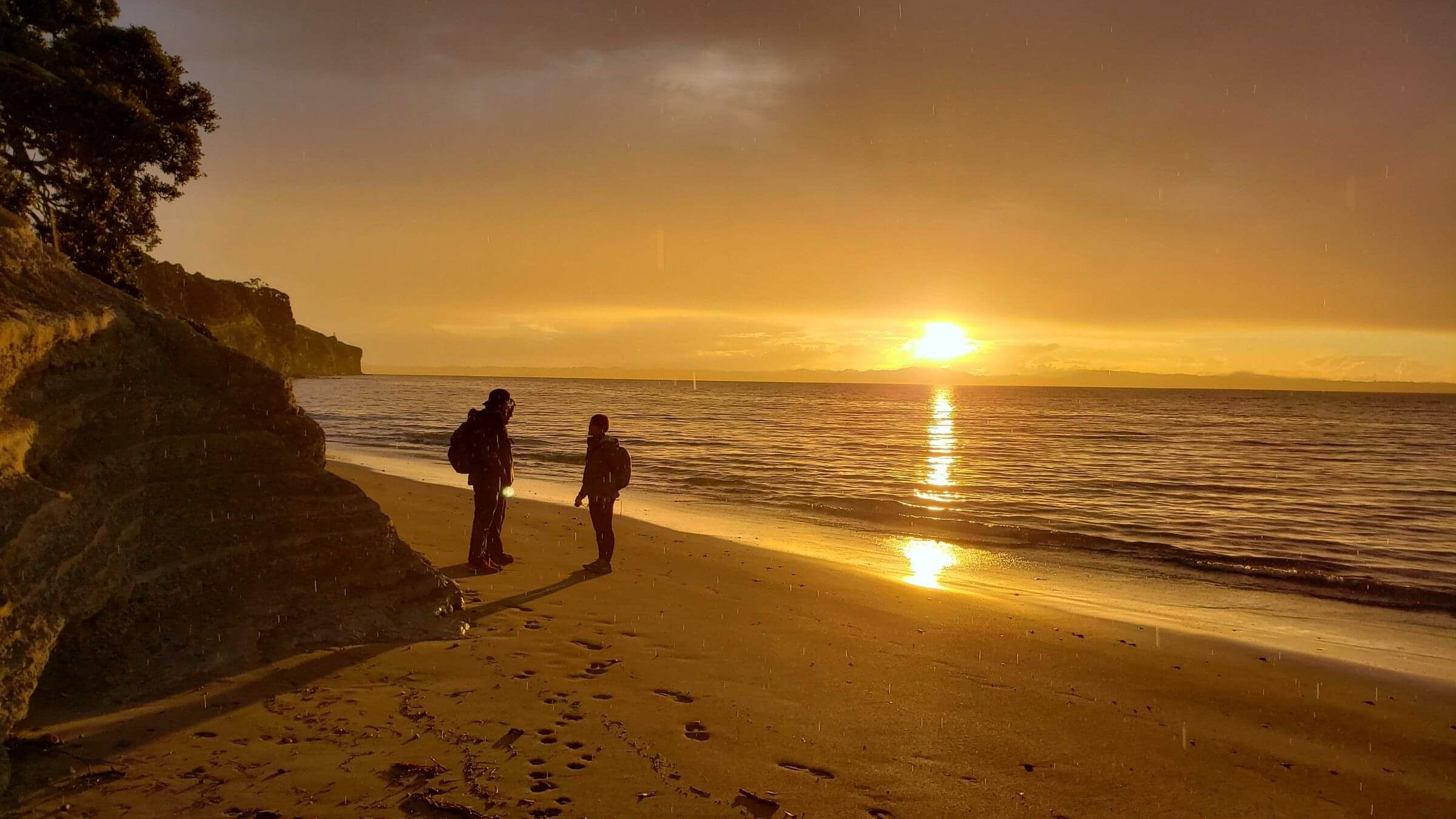
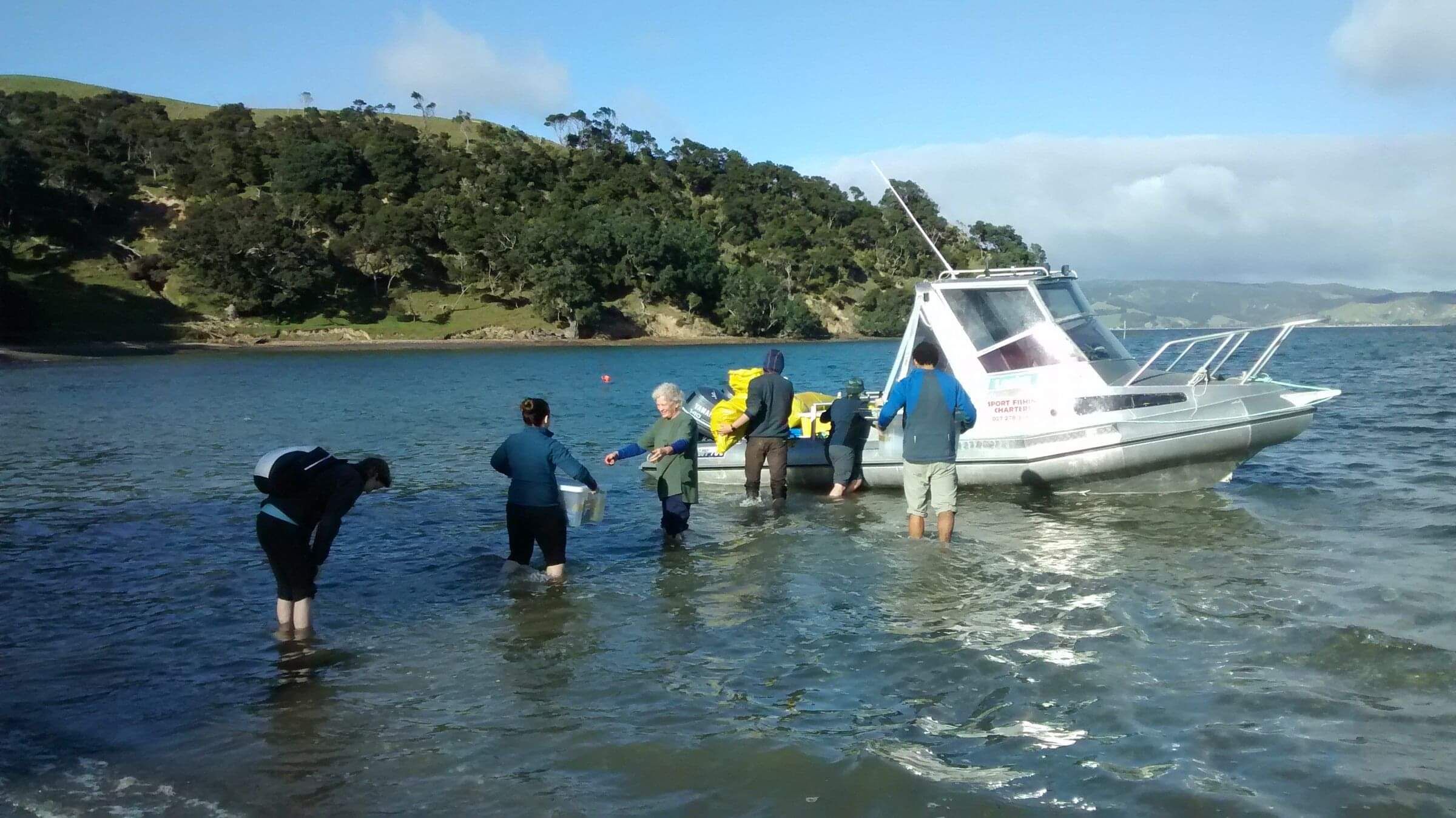
Summer Program
5 Weeks, 8 Credits, 2 Courses & 3 Islands: an unforgettable Summer Program in Aotearoa New Zealand.
Our five-week summer program provides an unequalled opportunity to gain academic credits while working toward sustainable solutions for the management of natural resources.
All learning opportunities offered by EcoQuest are packaged into a curriculum framework which addresses ecology and environmental policy pertaining to the real-life case studies and span the full spectrum of restoration opportunities on offshore islands in the Hauraki Gulf, New Zealand's largest marine embayment.
Since 1999, Ponui Island and Tiritiri Matangi Island have been core destinations for the Summer Program. Tiritiri Matangi was one of the earliest predator-free islands in the Hauraki Gulf. Restoration of this island ecosystem is well-advanced. It is now one of a large – and still growing – number of islands from which introduced mammals have been removed.
During the 5-week program we incorporate one or more of the other islands in our field trip schedule (in addition to Ponui and Tiritiri Matangi). The islands are integral to the meta-habitat that the Hauraki Gulf provides. Understanding ownership and governance models of these islands is part of our learning.
We have at least one overnight stay on a marae which allows a glimpse into Māori culture and traditions.
Sustainable Agriculture & Food Systems Aotearoa
Semester Program
15 Weeks, 16 Credits, 4 Courses
A rigorous hands-on program which traverses many dimensions of sustainable food systems in a wide variety of locations in Aotearoa. Opportunities to engage and contribute through farm placements, in-depth experiential learning, and refined offerings of field visits, case studies and guest speakers make this an unforgettable semester.
New Zealand is a world leader in primary production, with agriculture its biggest industry. Dairy, honey, eggs, meat, wool, wine, fruit, vegetables, seafood and timber from Aotearoa are exported around the globe. Agroecological and indigenous agricultural practices make important contributions toward sustainable management of water and land, and toward a zero-carbon economy.
We have a strong focus on forward-thinking to meet the challenges of sustainable food production in an ever-more sophisticated market that demands high-quality, high-value and diverse products as well as environmental accountability.
Biosecurity (pests and pathogens), water quality, maintaining biodiversity, and reducing emissions are key focus areas for innovation, research and development, with a view to future-proofing existing and new production systems.
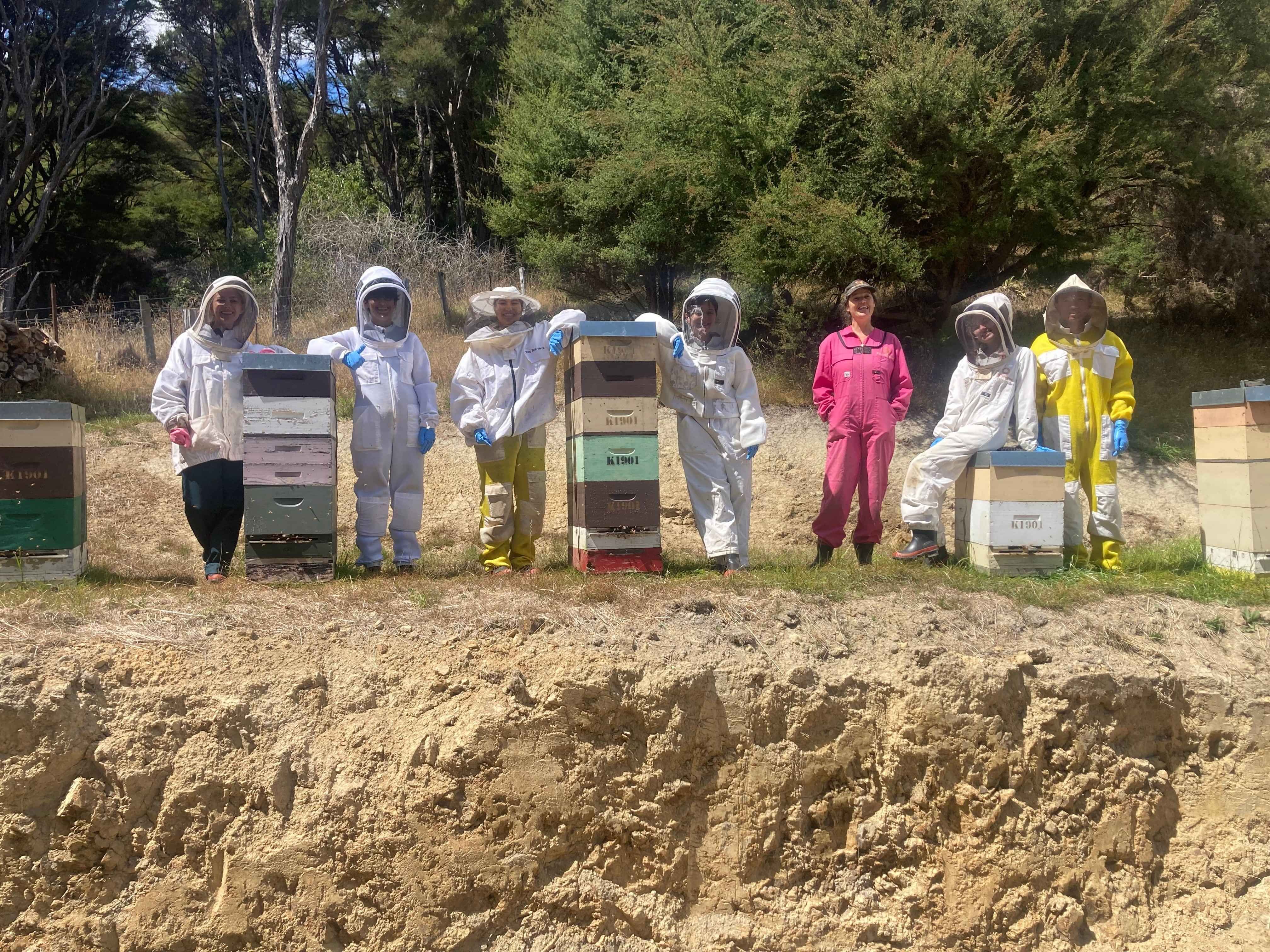
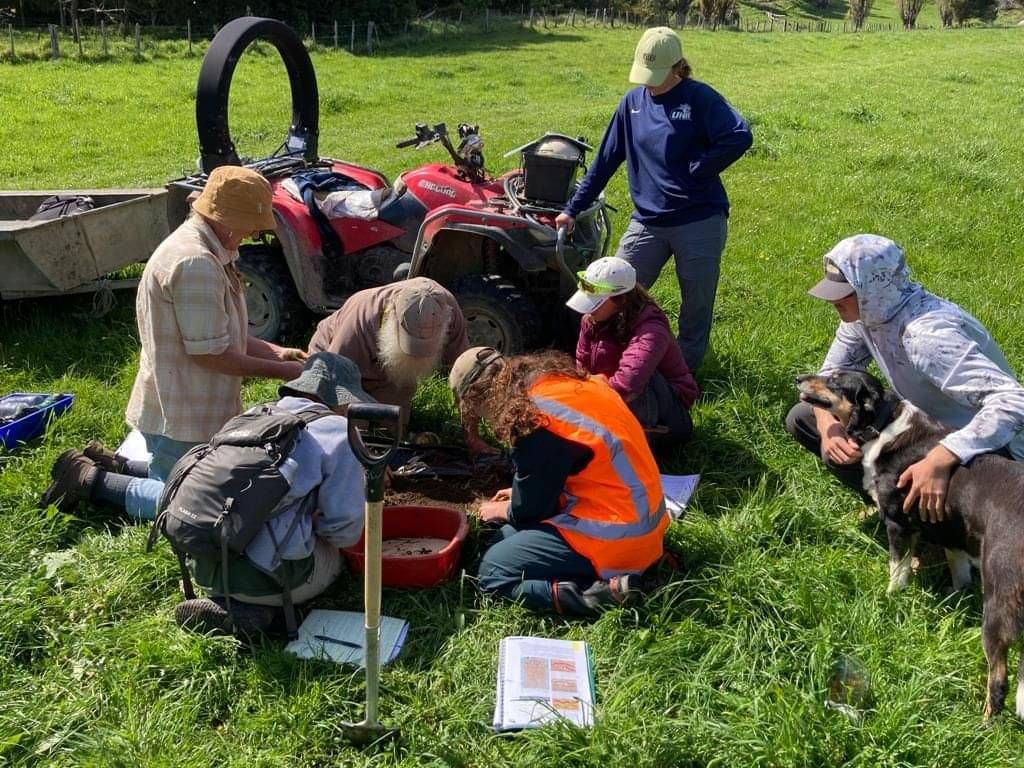
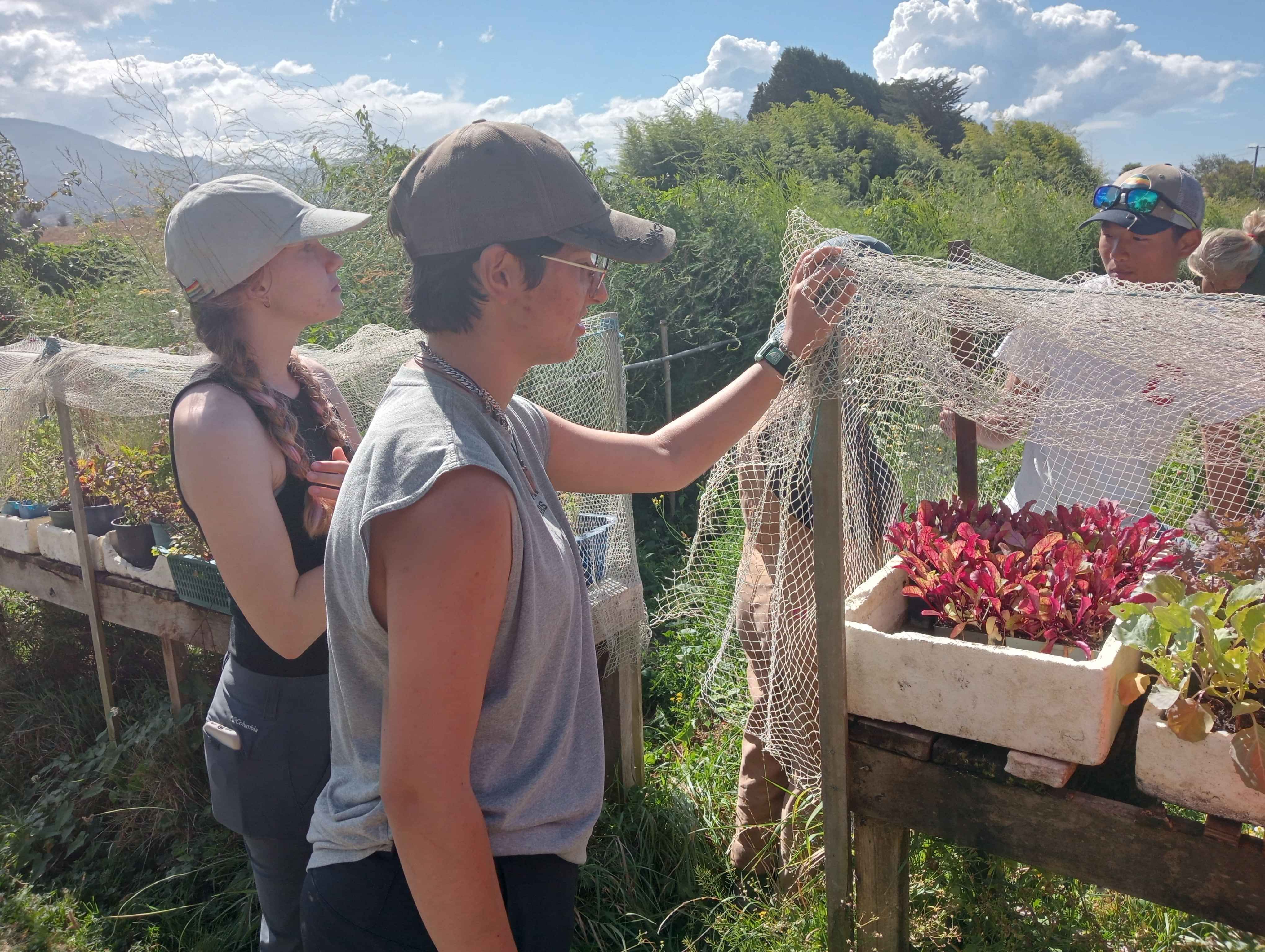
"The Sustainable Agriculture and Food Systems Aotearoa program looks to build on an incredible history of EcoQuest developing change agents for a better environmental future by digging in deep with agriculture. I can only imagine the leaders that will emerge from this experience and expect to see them shaping their communities for the better."
Alex Bryan, BA UMICH; EcoQuest '07; University of Michigan Sustainable Food Program Manager; Co-Owner of Detroit's Food Field; Founding Board Member National Young Farmers Coalition; Former Director of Agricultural Programs, Greater Lansing Food Bank
Sustainable Agriculture & Food Systems Aotearoa Program Overview
We provide an exciting mix of academic rigour, place-based and hands-on learning. This gives students great opportunities to engage with a variety of agribusinesses in New Zealand.
The goals of this program include enabling students to gain an in-depth understanding of:
- Global trends in agricultural sustainability and sustainable land management, challenges and manifestations of these trends in Aotearoa New Zealand.
- Political, economic and cultural models of agriculture.
- Situating agriculture in an ecosystems framework. Aligning land use with land use capability and landscape resilience in a manner compatible with existing and future ecological, social, cultural, economic, and political contexts.
- A systems approach to socially and culturally durable, economically viable, and politically expedient pathways enabling a transition towards agricultural sustainability and ecological resilience at scale.
We aim to empower students with experience, tools, professional, and life skills to engage with sustainable food systems and to be pro-active, solution focused practitioners.

